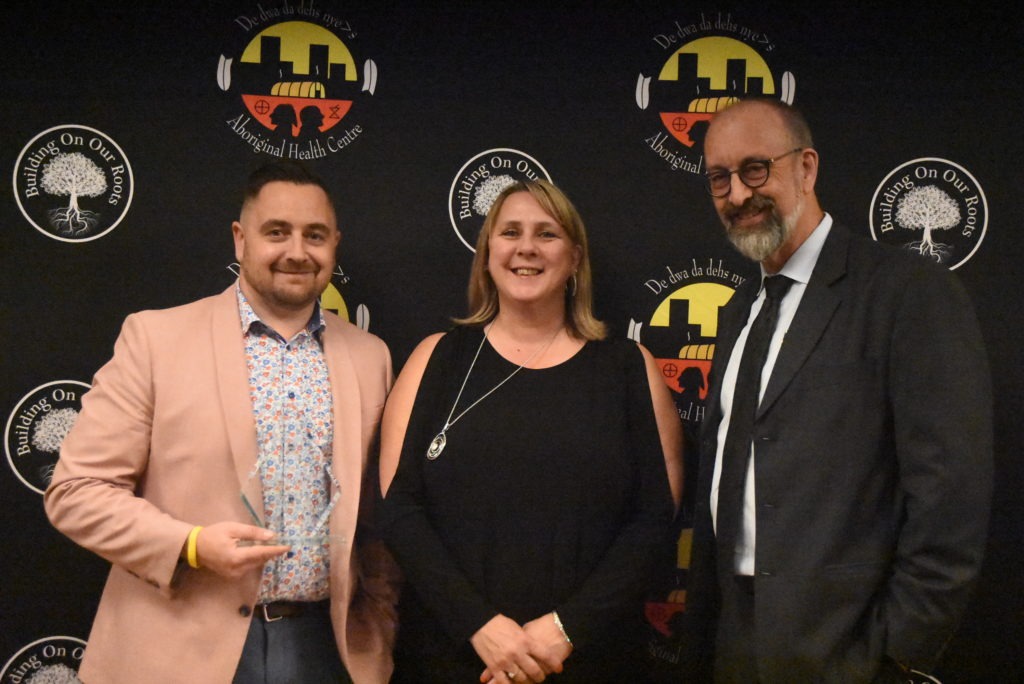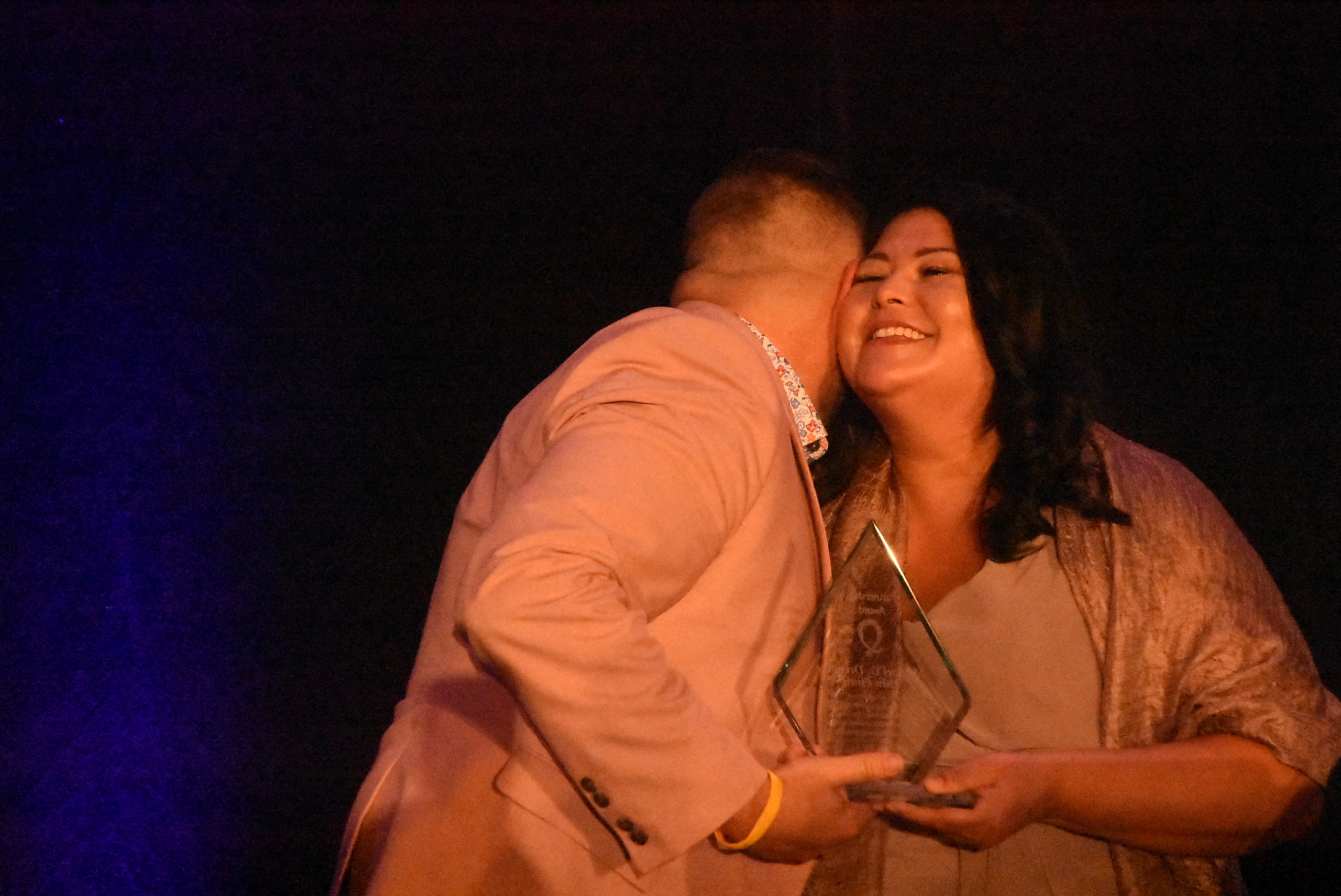
Aboriginal Health Centre honours HHS Pain Clinic
Hamilton Health Sciences’ Michael G. DeGroote Chronic Pain Clinic was recently honoured with the 2019 Partnership Award by De dwa de dehs nye>s Aboriginal Health Centre. The award is presented for “outstanding commitment to collaboration for the benefit of the health and well-being of Indigenous peoples.”
Committed to culturally appropriate care
In 2017, the clinic learned there was a need for greater need for access to pain management expertise in the Indigenous community. Since, they have worked together with the centre to provide integrated support.
“As health-care providers, I believe we have a responsibility to help those in need to have access to the best care possible,” said Lucas Milinovich, director of Urgent & Ambulatory Care at HHS, who supported the review. The clinic is part of his portfolio.
The two groups got together to figure out a model of care that would support the needs of patients at the centre, while helping the clinic team grow its understanding of Indigenous health and culture. The centre has locations in Hamilton and Brantford and provides a wide range of services, including pain management, to improve the health and well-being of Indigenous people.
“We wanted to develop a relationship-based approach to further support our doctors in the care of patients with complex pain management issues. We now have an integrated approach to pain management services which we can provide to our patients,” said Angela Naveau, clinic services manager at De dwa de dehs nye>s.
Bringing pain doctors to a safe space
Hamilton Health Sciences doctors now host bi-weekly clinics at both De dwa de dehs nye>s together with the centre’s primary care providers. Patient charts are reviewed together and clinicians have the chance to know the stories of each patient. The care providers meet with patients and propose an appropriate care plan.
Just as important as what care is provided, is where that care is provided.
“Everyone has learned and developed both clinical and cultural competencies”
“We focus on providing culturally safe, relevant and holistic care at our centre, which includes both western and traditional medicine, and access to ceremony, healers and wisdom keepers. We know that many patients won’t attend appointments outside of the centres so our goal was to provide this expertise in a place they feel comfortable,” said Naveau.

The partnership created a “knowledge transfer,” not just of clinical expertise but also of cultural understanding. The clinic team participated in San’yas Indigenous Cultural Safety Training, which enhanced their knowledge of Indigenous culture, history and traditional approaches to health care. The collaboration has also opened the team’s eyes to the historical challenges, trauma and barriers some individuals and communities have experienced when accessing hospital-based care.
“Everyone has learned and developed both clinical and cultural competencies,” says Lucas. ”I know this will continue to benefit us going forward. The greatest outcome has been more access to care and an improved patient experience, both at the centre and the clinic. This collaboration demonstrates what can be achieved when people come together and work to solve a challenge.”
Find out more about Indigenous care and services at HHS.
